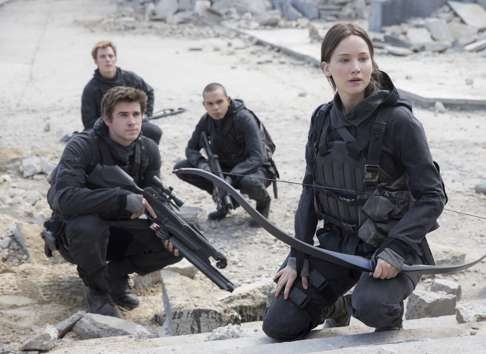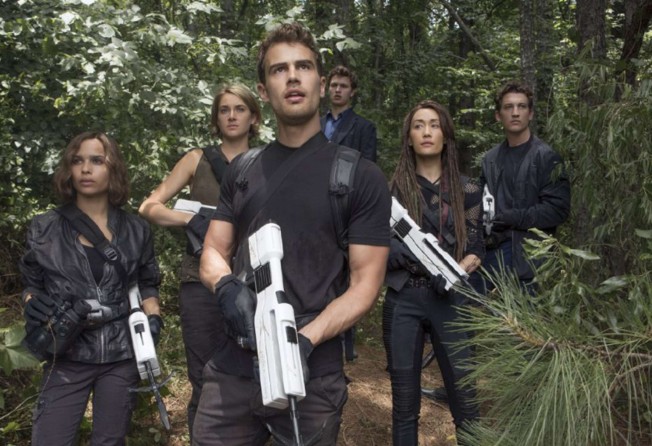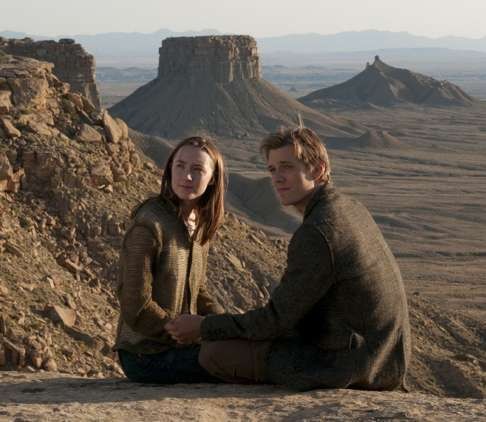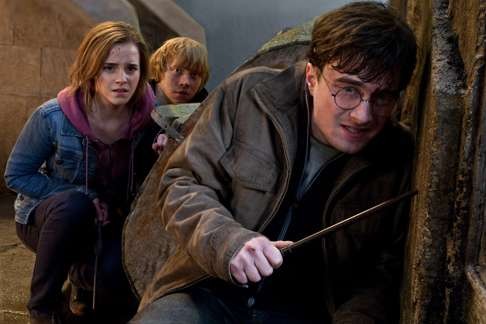
Have young adults had enough of dystopian fiction at the movies?
The success of The Hunger Games has had a lot of studios searching for their own money-spinning franchise but recently the returns have been diminishing

In cinemas this past weekend, a reluctant teen hero led a rebellion comprising an implausible clan of oppressed but likeable young iconoclasts. Together they rose up around their chosen one to fight their government’s evil social engineering.
Sound familiar? No, it wasn’t a new instalment of The Hunger Games, The Maze Runner or The Giver. And it wasn’t a reprise of Saturday Night Live’s “The Group Hopper” sketch, which blended almost every current dystopian teen trope into a trailer for a fake movie “written entirely”, the joke went, “in the comments section of a Hunger Games trailer”.
The film was The Divergent Series: Allegiant – Part 1, the third in the franchise starring Shailene Woodley and Theo James.
But with an opening weekend box office of just US$29 million in the US – compared with a $54 million start for Divergent (2014) and $52 million for Insurgent (2015) – Allegiant debuted at a disappointing second place behind the rabbit-fronted Zootopia (read our review here), calling into question whether we are witnessing the end of the young adult dystopian wave at the movies.

Certainly we haven’t seen the end of this franchise: The Divergent Series: Ascendent – Part 2 is scheduled for a 2017 release. And The Maze Runner is filming The Death Cure, the third and final instalment of the series, whose production was halted last week after star Dylan O’Brien was injured on set.
But few films in this genre have been able to claim big bucks in the style of The Hunger Games. The 2013 science-fiction thriller The Host made just more than $26.5 million in its entire domestic run, even though it was adapted from a novel written by Twilight author Stephanie Meyer and starred two-time Academy Award nominee Saoirse Ronan. Another alien-centric adaptation The 5th Wave, still in cinemas, has made just under $34 million since its January debut.

Most discouraging was junior-high and grade-school English class mainstay The Giver by Newbery Medal-winning author Lois Lowry. The long-time passion project of actor Jeff Bridges boasted a hefty cast including Bridges and fellow Oscar winner Meryl Streep. But critics found the film flawed and it made just $45 million in its domestic run.
Do these falling numbers indicate that we are nearing the end of the young-adult dystopian era?
Paul Dergarabedian, a senior media analyst for comScore, doesn’t agree that the onus can be placed solely on the genre in question. “Although as a whole the YA dystopian movies have had massive success, many films from this category have fallen short, so their continued relevance in the marketplace has come into question,” Dergarabedian says.
“The overriding premise of most of these films seem very similar and thus the natural conclusion is that YA audiences may be looking for other, perhaps fresher options,” he adds.
The pileup in genre films is not a new phenomenon. Twilight spawned a resurrection of vampire films. Fright Night, Dark Shadows and even Abraham Lincoln: Vampire Hunter all sought to capitalise on the fang trend but failed to pump new blood into the genre. After the Harry Potter films made enough gold to fill many vaults at Gringotts, Potter-fodder filled cinemas with piping-hot childlike wonder. The Spiderwick Chronicles, The Seeker, The Bridge to Terabithia and others all hoped to enchant some of that Hogwarts crowd or carve out their own fan-verse.

Even though the movie dystopia looks to be slowly dwindling in box-office numbers, the “bleak future” trend is alive on television. The CW’s critically adored The 100 just got renewed for another season, Carlton Cuse’s alien-occupied Los Angeles thriller Colony premiered in January and AMC’s The Walking Dead (while mostly teen-free) is still running strong with a spin-off Fear the Walking Dead in tandem. More is on the way. The CW gave the green light to an adaptation of Louisa May Alcott’s Little Women with a dystopian bent. Wrap your head around that.
On the film front, you only have to look at the coming attractions to see what the studios are hoping will capture the disposable income of the young-adult crowd. One exciting trend appears to be fairy-tale adaptations. Disney has already cued up a live-action Beauty and the Beast starring Harry Potter’s Emma Watson, and Chloë Grace Moretz has been cast to star as the title character in Universal’s live-action Little Mermaid. Will The Huntsman: Winter’s War, the Snow White-inspired film with a dash of Snow Queen, cash in on the new trend this April? Only time and money will tell.
Los Angeles Times